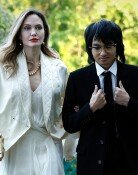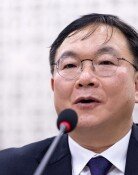New Deal should be the transformation of values
New Deal should be the transformation of values
Posted May. 25, 2020 07:46,
Updated May. 25, 2020 07:46
Left-wing economist Woo Seok-hoon publicly sent a letter to President Moon Jae-in last week. He argued that the government should stop promoting telemedicine as a part of the Korean New Deal. Liberals have long asserted that telemedicine leads to privatization of health care, which is why Woo’s argument was not a surprise. But personally, this part caught my attention.
“I decided to write this letter because of a more realistic and political sense of crisis. It is not because of the inner conflict on whether Moon Jae-in of 2012, who argued for ‘medical insurance price cap,’ is the same person as Moon who included “no-contact medical treatment” in the Korean New Deal,” Woo said. “The current no-contact medical care could bring the first crisis to the government after the candlelight vigil. It will have huge social repercussions. I hope you would look back on the moments when we contemplated on public medical care.”
Sometimes it is hard to share the future with a person you shared the past with. Woo stood next to Moon during the two presidential elections. The same thing happened in the Roh Moo-hyun administration. The decision to sent troops to Iraq and the South Korea-U.S. free trade agreement triggered erosion of his support base. But South Korea’s manufacturing businesses would not have been able to maintain hiring without the FTA, which dissenters said would lead to subjugation of the South Korean economy. Opponents of the FTA remained silent when the U.S. demanded to revise the agreement later saying that only South Korea benefited from it.
Pandemics have changed the direction of history because they cut off the past. Statistics Korea’s survey said that income inequality widened in the first quarter of the year along with the decreased income of the bottom 20 percent, which the state agency interpreted as an impact of COVID-19. It never mentioned the income-driven growth policy that weakened low-income families. The agency blamed the pandemic for the collapse of small business owners and weakening fundamentals of the manufacturing industry.
The government should start anew now as it has an excuse for everything gone awry. It is not certain that the New Deal would become the starting point but cutting off the past is still needed to implement it well. The New Deal of the U.S. during the Great Depression is known as an expansionary fiscal policy, but in fact, it had a precondition of transforming systems and values. The U.S. acknowledged the right to organize and the right for collective bargaining of workers and introduced the minimum wage and working hour limit. It is not an exaggeration to say that most of the current welfare systems in the U.S. were founded during that time. The opposition of the privileged class was soothed by the exponential increase in demand after the outbreak of the world war.
Whichever direction it takes, it would be difficult to make progresses in the Korean New Deal without a social framework to accept changes. On the face of it, the medical industry seems to be arguing against the remote healthcare most vehemently, but the opposition of the ruling party supporters, who believe it undermines liberal values of public healthcare, could be the biggest obstacle. Similarly, persuading those who argue for balanced development would be a greater obstacle to ease regulations for businesses returning to South Korea than the opposition of the Ministry of Environment and the Ministry of Land, Infrastructure and Transport.
Some people said that President Moon Jae-in of the past three years was reminiscent of King Taejong and hopefully he would become King Sejong for the next two years. Taejong was able to establish the foundation of the Joseon Dynasty and prepare for the era of Sejong because he executed four brothers-in-law and his confidant Lee Suk-beon. King Taejong opened up a new era by breaking up his revolution comrades who were not his subordinates. Breaking up from the past is a prerequisite for change and innovation. The same is applied for the New Deal of South Korea.
koh@donga.com



![‘노인 냄새’ 씻으면 없어질까?…“목욕보다 식단이 더 중요”[노화설계]](https://dimg.donga.com/c/138/175/90/1/wps/NEWS/IMAGE/2026/02/27/133434557.3.jpg)



